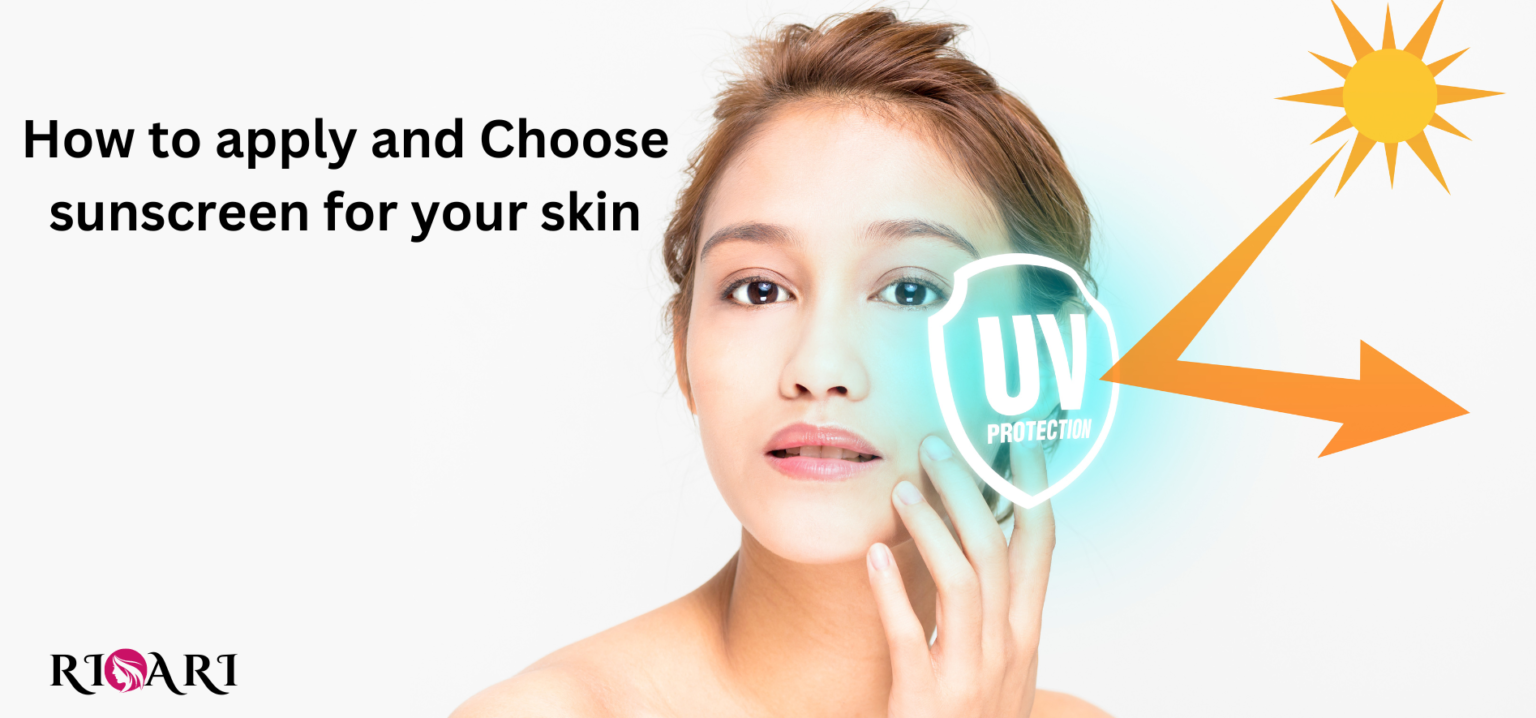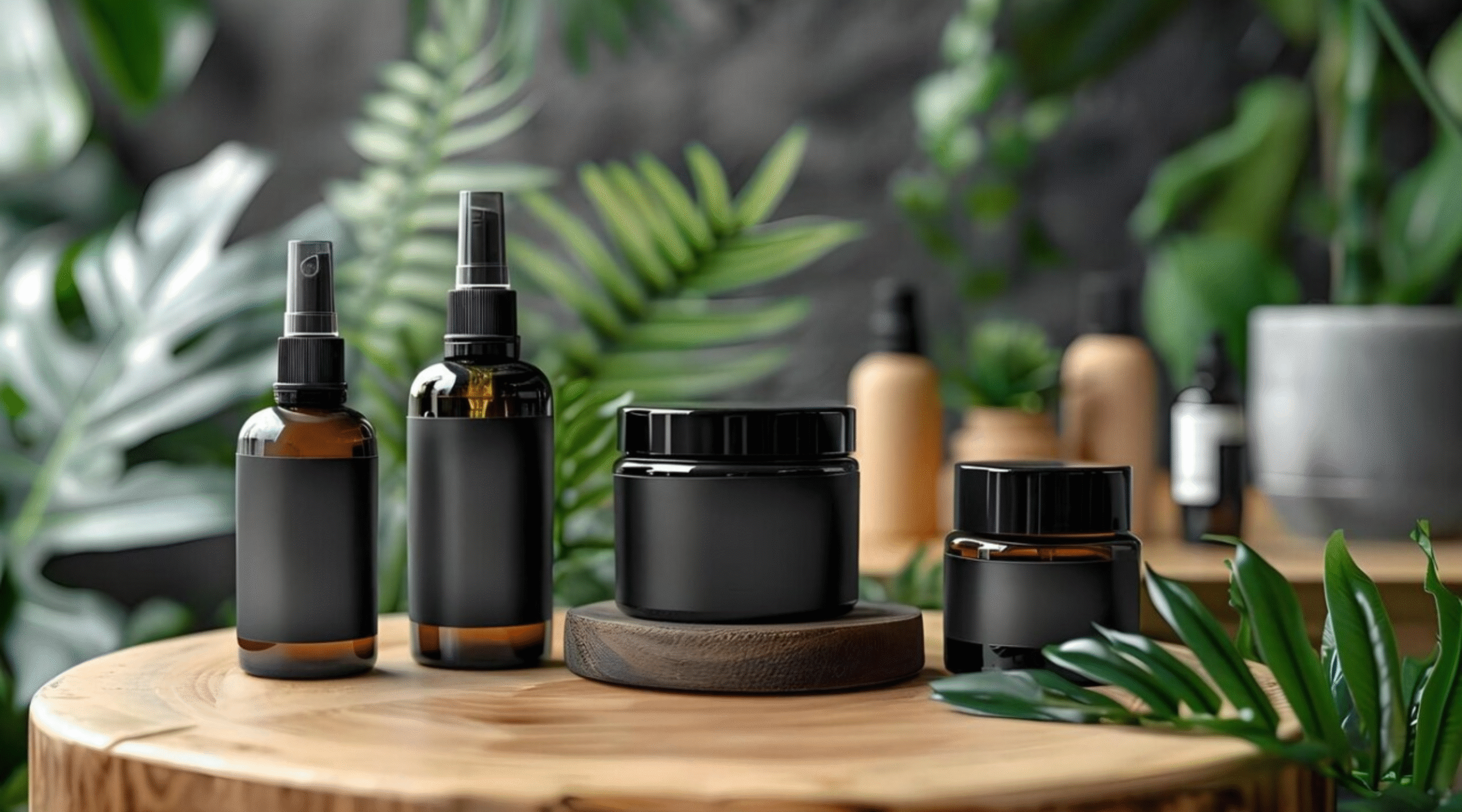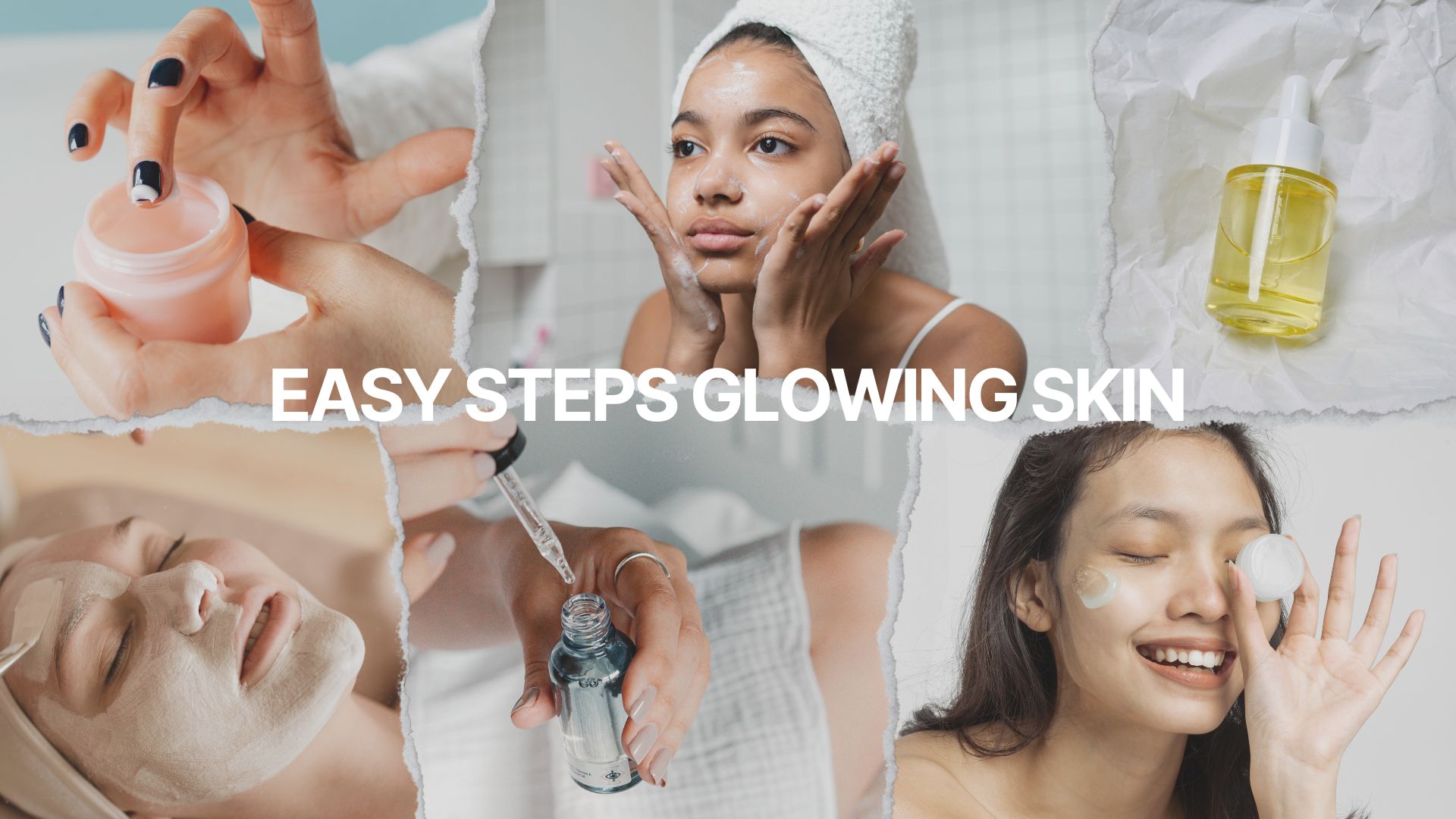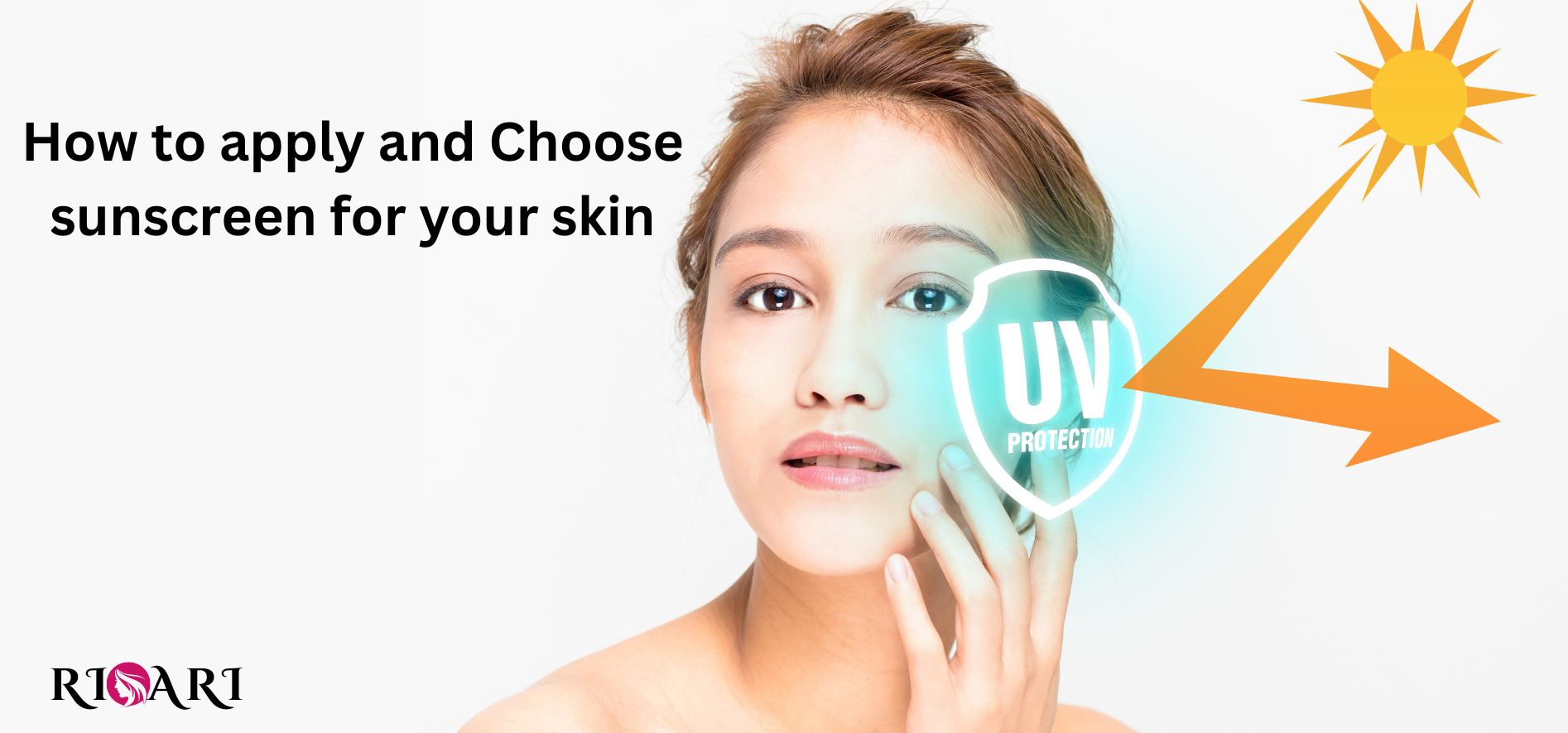Sunscreen is not more than just for beach days; it’s an important component of daily skincare. It protects your skin from dangerous UV rays, prevents unseasonable aging, and lowers the chance of skin cancer.
Now, we’ll see the significance of sunscreen, and how I chose the right one, and I’ll share my tips on proper use for you.
Before discussing why sunscreen is essential, let’s understand what sunscreen is and how many types of sunscreen it has.
What is sunscreen?
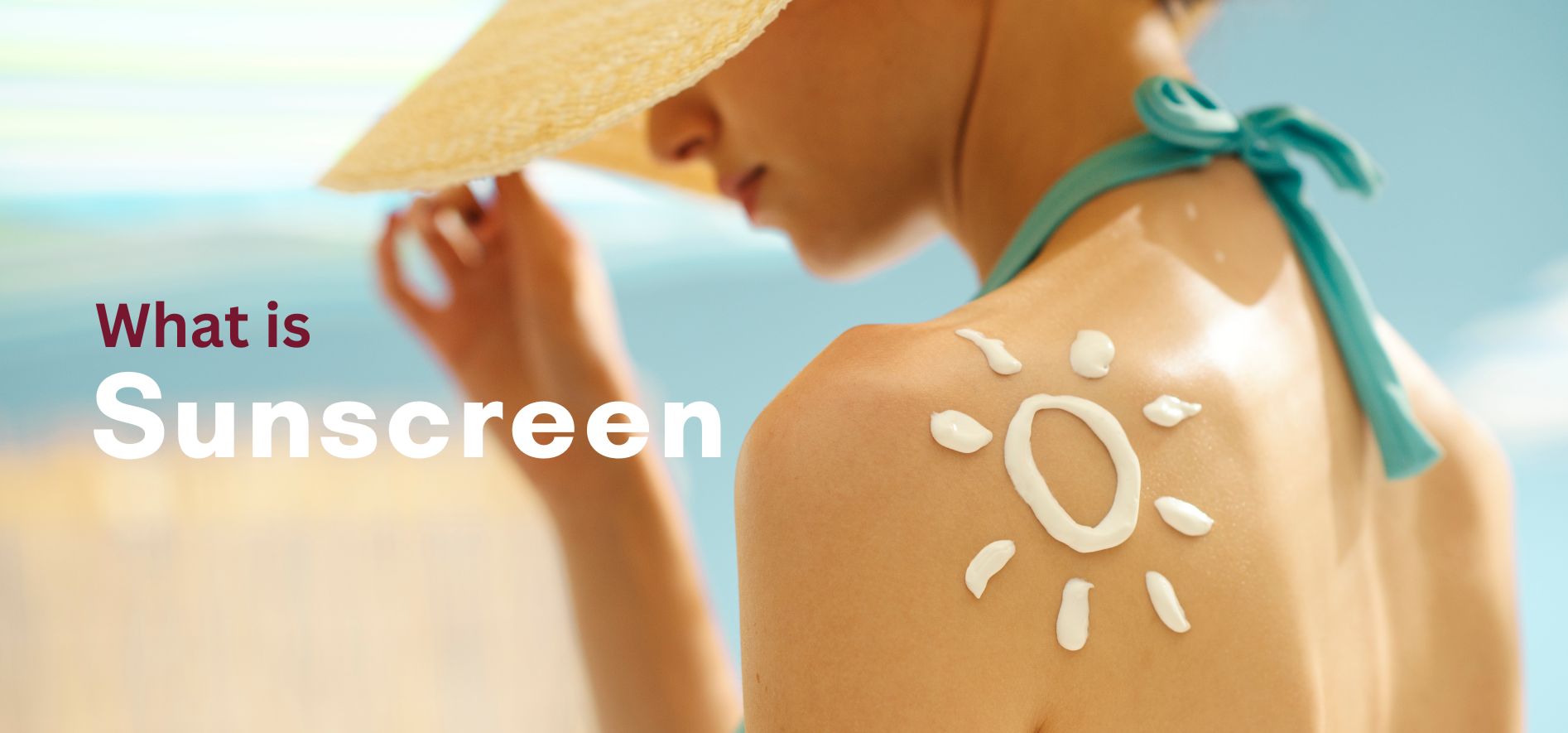
Sunscreen is a topical product designed to cover your skin from the sun’s ultraviolet (UV) radiation. It either absorbs or reflects UV shafts, precluding them from piercing the skin and causing damage.
Types of Sunscreen
Chemical Sunscreen: These sunscreens contain organic (carbon-grounded) composites that absorb UV radiation and convert it into heat, which is also released from the skin. constituents frequently include avobenzone, octinoxate, and oxybenzone.
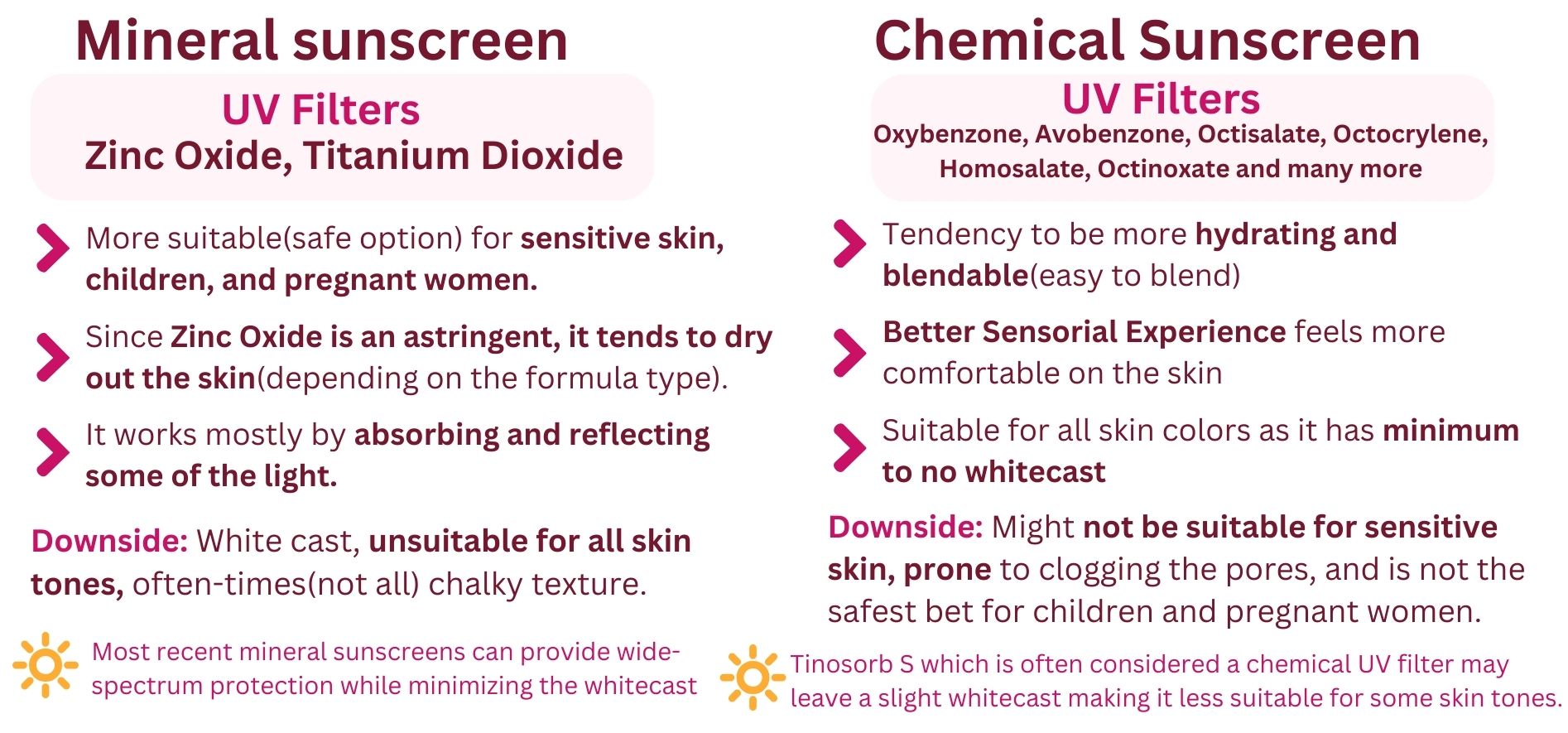
Mineral Sunscreen: These sunscreens use mineral constituents like zinc oxide or titanium dioxide to physically block and reflect UV radiation from the skin. They’re frequently preferred for sensitive skin as they cause less vexation.
Why is sunscreen important?
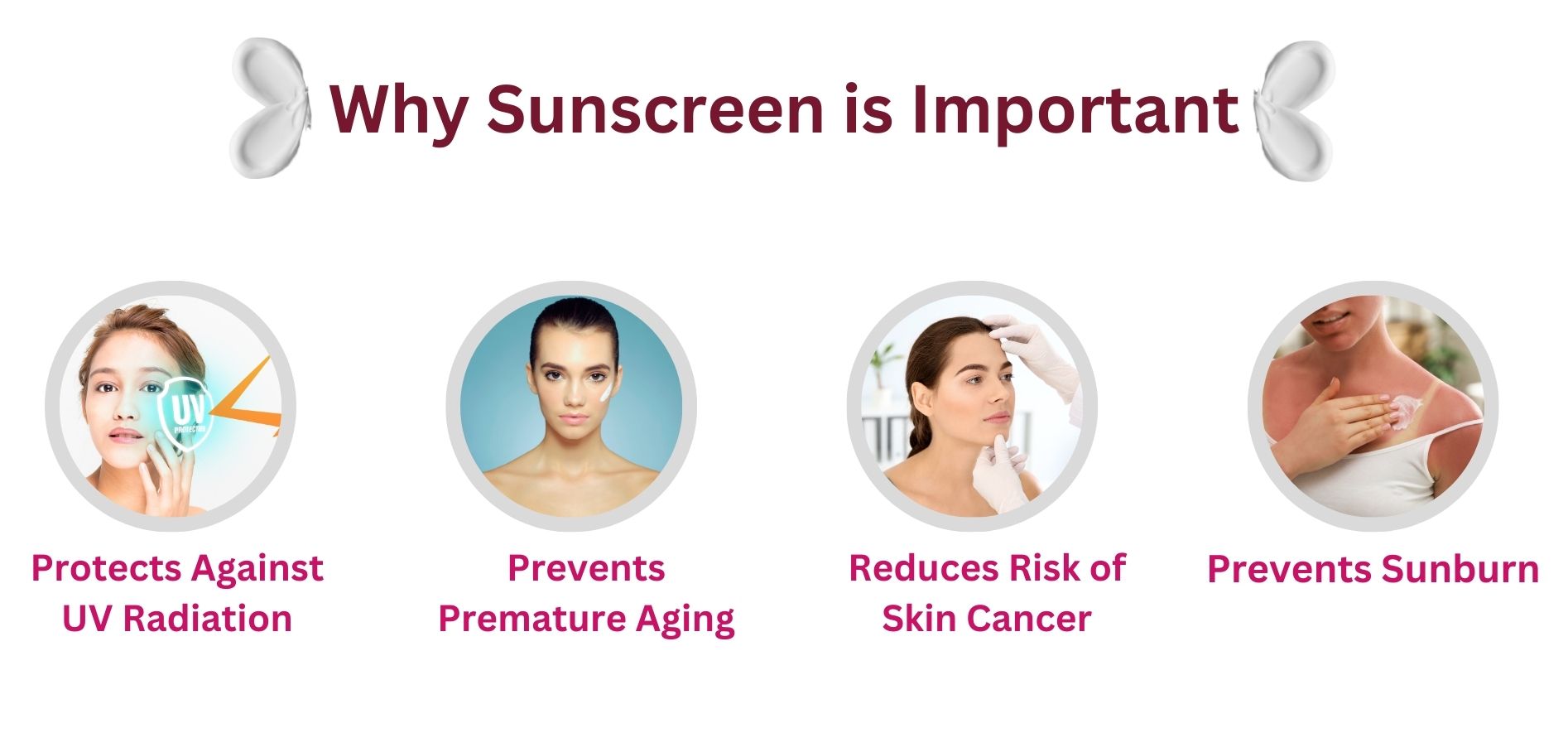
Protects Against UV Radiation
UV radiation from the sun includes UVA and UVB shafts, both of which can cause skin damage. UVA shafts access deep into the skin, leading to unseasonable aging and wrinkles, while UVB shafts affect the face, causing sunburn. Sunscreen helps cover both types of shafts.
Prevents Premature Aging
Regular use of sunscreen can decelerate the development of wrinkles, age spots, and sagging skin caused by sun exposure. It keeps your skin looking immature and healthy.
Reduces Risk of Skin Cancer
Skin cancer is among the most frequent cancers worldwide. Using sunscreen daily reduces your risk of acquiring skin cancers, including melanoma, which is potentially fatal.
Prevents Sunburn
Sunburn not only causes discomfort and redness, but it also enhances the risk of skin cancer and affects skin aging. Sunscreen protects against sunburn by preventing damaging UV radiation.
How to Choose the Right Sunscreen
How to Choose the Right Sunscreen Selecting the right sunscreen can be overwhelming with so many options available. Here are some key factors that I follow:

SPF Rating: The Sun Protection Factor (SPF) indicates how well a sunscreen blocks UVB radiation. An SPF of at least 30 is suggested for everyday use, as it blocks around 97% of UVB radiation.
Broad-Spectrum Protection: Make sure your sunscreen provides broad-spectrum defense, which means it blocks both UVA and UVB radiation. This is essential to overall sun protection.
Water Resistance: If you plan on swimming or sweating, use a water-resistant sunscreen. These sunscreens are intended to remain effective even after being exposed to water or sweat for a specific amount of time, typically 40 or 80 minutes.
Skin Type Considerations: Consider your skin type when selecting a sunscreen. If you have sensitive skin, opt for a mineral sunscreen with zinc oxide or titanium dioxide. For oily or acne-prone skin, look for non-comedogenic formulas that won’t clog pores.
Application of Sunscreen
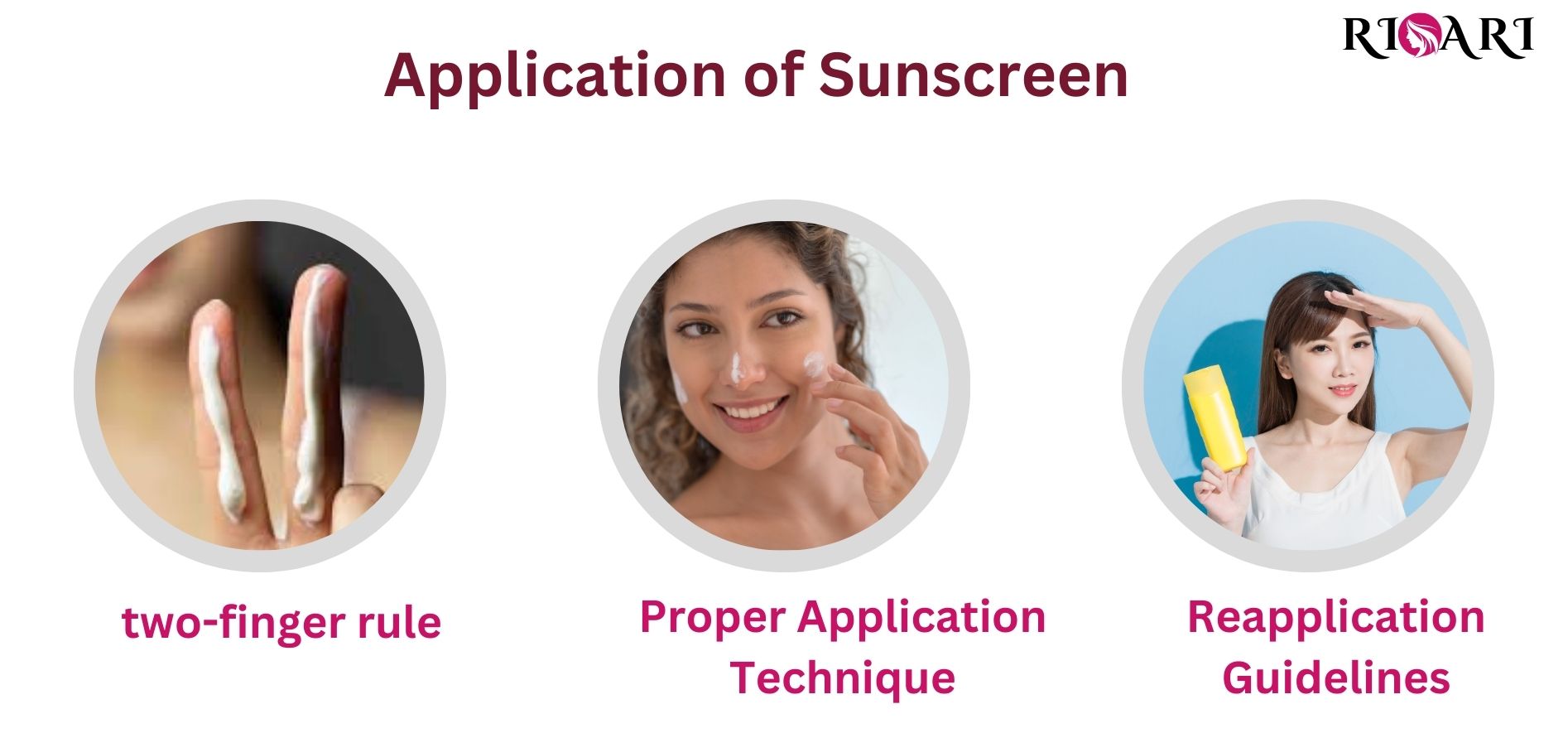
How Much to Apply: Using the proper amount of sunscreen is just as important as choosing the appropriate SPF. Most people use significantly less sunscreen than recommended, which can reduce its protective properties. To apply sunscreen to your face, use approximately 1/4 teaspoon. This may not seem like much, but applying enough is necessary to ensure appropriate coverage. The two-finger rule is an alternative approach for determining how much sunscreen you need. Squeeze enough sunscreen to cover the length of two fingers.
As a general guideline, cover all exposed flesh, including your ears, neck, and décolletage.
If you’re using a spray sunscreen, make sure to apply it generously to get full coverage. It’s also recommended to reapply sunscreen every two hours or more often if you’re sweating or swimming.
Proper Application Technique: Apply sunscreen to all exposed skin, including often-missed areas like the ears, neck, and tops of your feet. Rub it in thoroughly for even coverage.
Reapplication Guidelines: Reapply sunscreen every two hours, or immediately after swimming, sweating, or towel drying. Consistent reapplication is key to maintaining protection.
Common misconceptions about Sunscreen
There are many misconceptions about sunscreen. Let’s debunk a few:
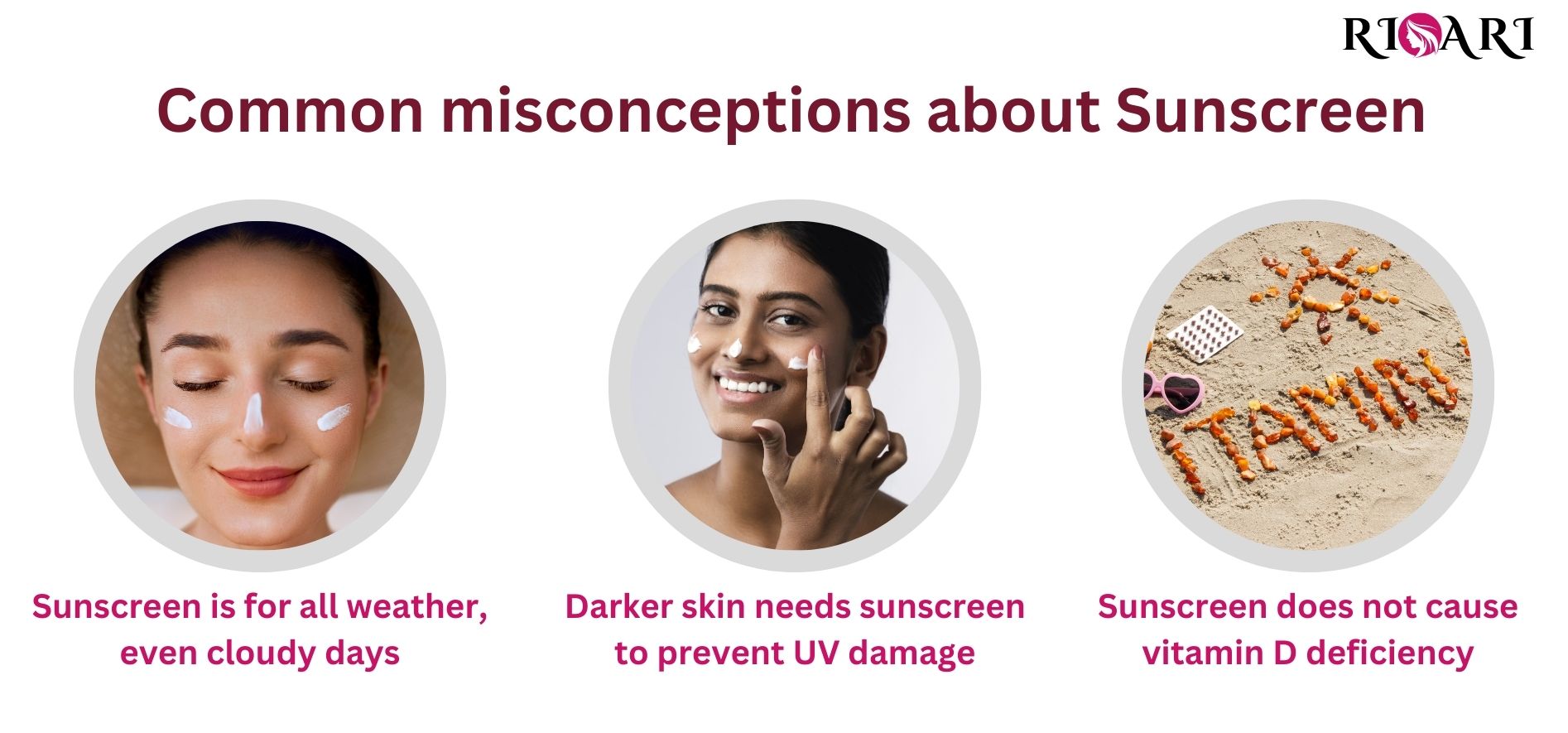
Misconception: Sunscreen is only for sunny days.
UV radiation can penetrate clouds, so sunscreen should be used even on cloudy days. On gloomy days, up to 80% of UV radiation may reach your skin.
Misconception: Darker skin does not require sunscreen.
Darker skin contains more melanin, which gives some natural protection, but it is still vulnerable to UV damage and skin cancer. Everyone, regardless of skin tone, should apply sunscreen.
Misconception: Sunscreen Leads to Vitamin D Deficiency
You can use sunscreen and still have appropriate vitamin D levels. Spend brief periods of time in the sun, eat vitamin D-rich foods, and consider taking supplements as needed.
Tips to Maximize Sunscreen Effectiveness
Here are some ideas to make the most of your sunscreen:
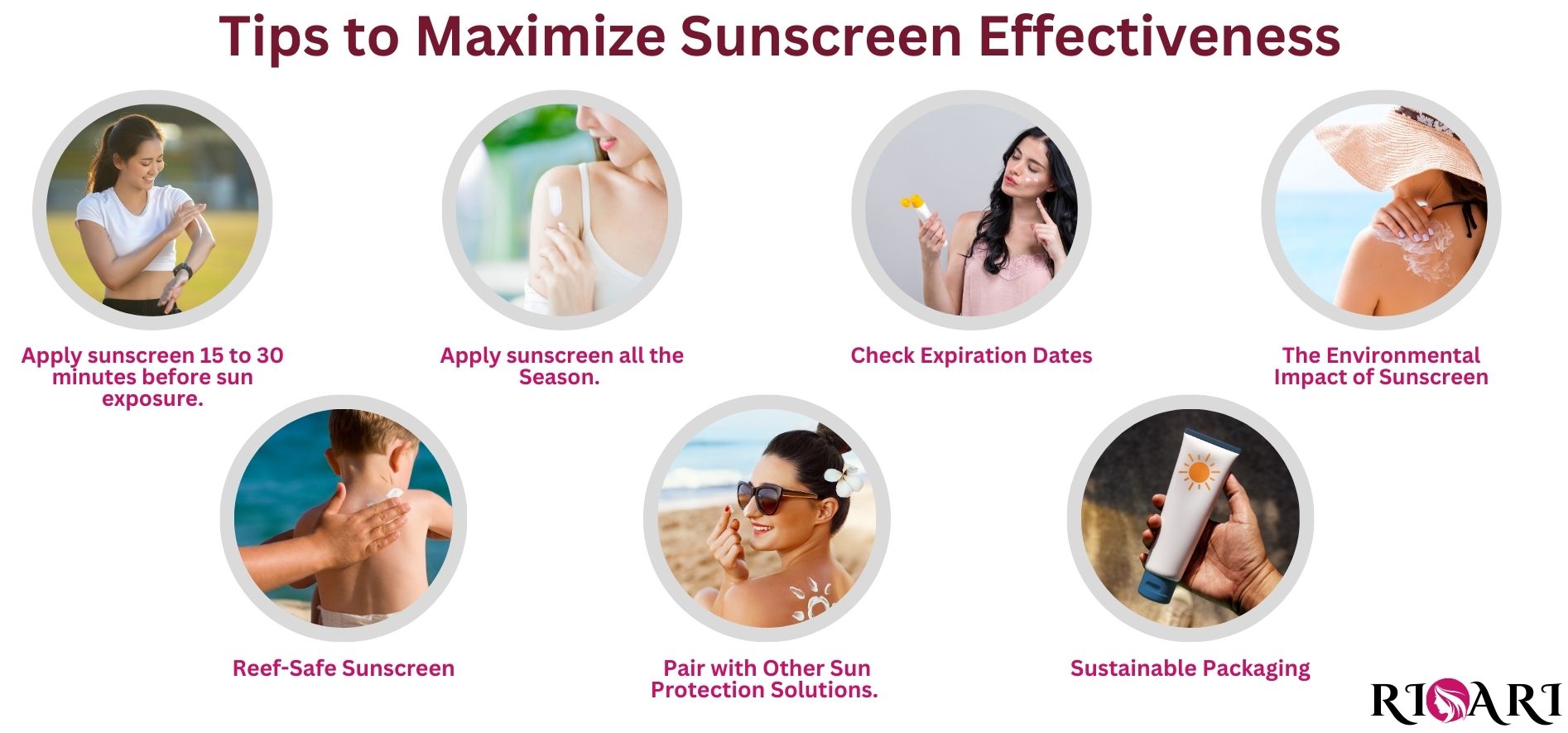
Apply sunscreen 15 to 30 minutes before sun exposure: This helps the sunscreen properly penetrate and create a protective layer on your skin.
Use sunscreen year-round: UV rays can cause skin damage at any time of year, so include sunscreen in your regular routine, even in the winter.
Pair with Other Sun Protection Measures: Wear protective clothing, sunglasses, and hats, and seek shade during peak sun hours (8am to 6pm) to protect yourself.
Check Expiration Dates: Sunscreen loses effectiveness over time. To guarantee the best protection, always check the expiration date and replace any outdated sunscreen.
The Environmental Impact of Sunscreen: Some sunscreens contain chemicals that can harm marine life and coral reefs. To reduce your environmental impact, consider.
Reef-Safe Sunscreen: Look for sunscreens that are reef-safe or do not contain hazardous compounds such as oxybenzone or octinoxate.
Sustainable Packaging: To reduce waste, choose sunscreen that comes in recyclable or biodegradable packaging.
Sunscreen is an essential tool for protecting your skin from damaging UV rays, preventing premature aging, and lowering the risk of skin cancer. You can enjoy the sun safely and keep your skin healthy and youthful by using the right sunscreen and applying it properly. Make sunscreen a regular habit, and combine it with other sun protection measures for complete skin care.
Tag: #allskintypes, #bestskincare, #birchtree, #dryskin, #hydrating, #hydration, #ingredient, #kbeauty, #moisture, #musthave, #roundlab, #skincare, #spf, #sun, #suncream, #sunscreen, #trend, #makeup, #sun stick
